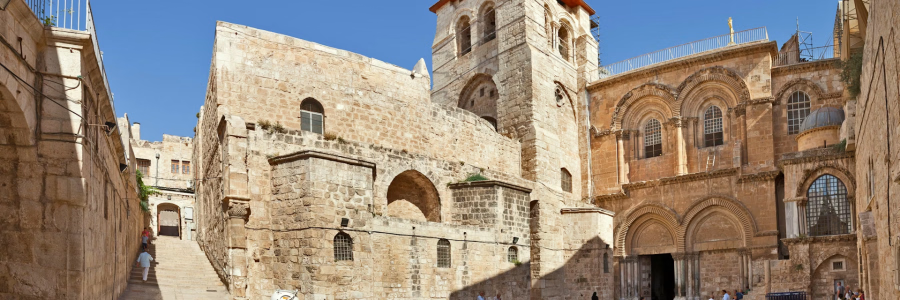The Church of the Holy Sepulchre in Jerusalem is a sacred place for Christians. It marks where many believe Jesus was crucified and buried. For hundreds of years, keeping this site safe has relied on a special plan. Two Muslim families, the Nusseibehs and the Joudehs, are the keepers of the church doors. Their role helps different Christian groups share the space without fighting.
History shows that the Nusseibeh family began this work in the 7th century. In the year 638, a Muslim leader named Caliph Umar told the family to protect the church. He wanted to stop arguments between Christian groups about who could use the entrance. Crusaders briefly changed this plan, but a leader named Saladin brought it back in 1187. Later, the Ottoman Empire kept this tradition alive for hundreds of years.
The two families share the work in a specific way. The Joudeh family holds the physical key to the large church doors. Every morning, a member of the Joudeh family brings the key to the church. He hands it to a member of the Nusseibeh family, who acts as the doorkeeper. The Nusseibeh representative then opens the heavy doors. They repeat this ritual every night. This system ensures that no single Christian group can control the entrance.
The key is a strong symbol of history and working together. It is made of iron and is about twelve inches long. It represents over one thousand years of history in Jerusalem. This ritual solves a hard problem. Many different Christian groups, like the Greek Orthodox and Roman Catholics, share the sanctuary. Having neutral Muslim families in charge of the door maintains a steady peace.
The Nusseibeh family is well known for more than their role at the church. Members of the family have been diplomats and scholars. Anwar Nusseibeh was a high-ranking official who helped with regional peace talks. His son, Sari Nusseibeh, became a famous philosopher and university president. He worked hard to find peaceful solutions to modern problems. Their family legacy reaches from the ancient church gates to modern schools.
Today, people from around the world watch the morning and evening door rituals. The ceremony shows how ancient traditions can provide stability. It proves that people of different faiths can cooperate to protect a holy site. The Muslim guardians at the Church of the Holy Sepulchre represent a long history of tolerance. Their work ensures the site stays open for everyone to visit in peace.

